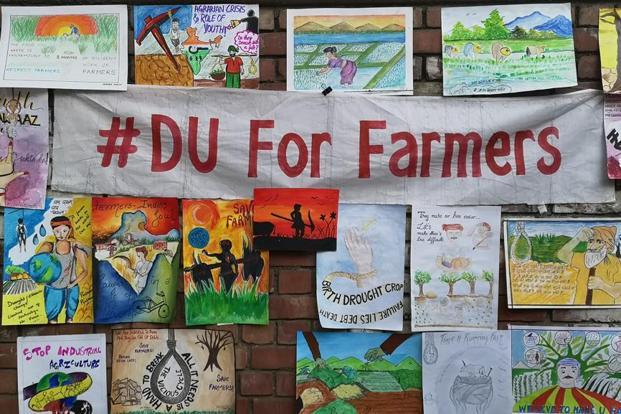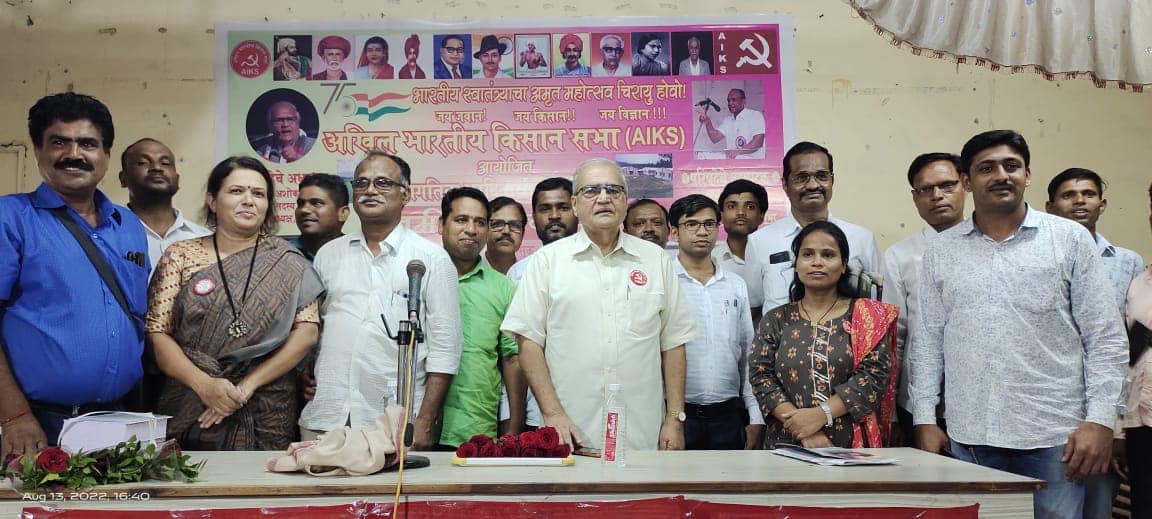Opinion | Why you’re invited to march with farmers – Livemint

When 40,000 mainly Adivasi farmers marched 180km from Nashik to Mumbai to protest in front of the state legislative assembly in March, something magical happened. Middle-class Mumbaikars, who are usually too busy syncing their lives to the breathless rhythm of the Virar Fast to worry about co-existing Indias, reached out to the protestors.
The farmers opted to complete their last 15km through the city at night so they wouldn’t disrupt board exams scheduled for the next day—and Mumbai responded in kind. “For the first time I saw the middle classes come out in support and sympathy for the farmers,” says P. Sainath, award winning journalist, author, and founder of the People’s Archive of Rural India, an online journal and archive of our complex countryside.
Sainath, who has tracked Indian agriculture with a single-minded passion for decades, couldn’t believe what he saw—city folk left their offices to distribute food and water to the marchers; someone deposited 1,000 pairs of slippers for the barefoot farmers who had been bandaging their bleeding, calloused feet with transparent tape bought from stationery stores along the route; doctors from JJ Hospital pitched in to treat hurt feet; and lawyers asked if they should file PILs against the state government. The march went from being of zero interest to the mainstream media to the top headline everywhere.
“I’ve been in the movement for 40 years and I have never seen such spontaneous support. People were really touched by the spectacle,” says Ashok Dhawale, president of the All India Kisan Sabha, the farmer’s wing of the Communist Party of India (Marxist) that organized the march.
Now Dhawale is hoping this love will be multiplied many times on 29-30 November when some 200 farmers groups under the banner of the All India Kisan Sangharsh Coordination Committee march to Delhi to demand a special 21-day joint session of Parliament to discuss the agrarian crisis and related issues.
This time, you are invited. There’s an active effort to mobilize the middle class and the working class to join the march, driven by the volunteer-run website DilliChalo.in and its similarly named social media handles.
Around 20,000-25,000 farmers will march to Delhi from all parts of India and enter the city from four corners on 29 November to assemble at the Ramlila maidan, Dhawale says. The next day, he adds, lakhs will join and march to historic dissent venue Boat Club (if they get police permission) or to Parliament Street.
Across the country, an informal forum of volunteers, Nation For Farmers, which was created at a meeting of 200 people in August to support the farmer’s march, has gotten a life of its own: There are now groups of lawyers for farmers, doctors for farmers, students for farmers, techies for farmers, auto rickshaw drivers for farmers and soldiers for farmers all over India.
Students from the city’s colleges—under the group DU (Delhi University) for Farmers—are expected to be enthusiastic participants. Many have already volunteered to run the social media campaign. Evita Rodrigues, 20, a political science and economics student at St Stephens, says she’s been reading up on the issue for the past few months and is now helping mobilize students and sign on volunteers. “A lot of the manpower to manage the online pages is coming from the student community, even though it’s exam season,” she says.
“Some professors are even saying that as part of your course work you have to go,” adds Sruti M.D., 25, a PhD student at Ambedkar University. “There’s a sense that this is the least we can do for farmers. I’m also going because I want to mobilize students and show them we are in solidarity with the farmers.”
Alagunambi Welkin, general secretary of the Union of IT and ITES Employees (UNITE) will fly in to Delhi from Chennai as part of a group of 50 techies to welcome the farmers at Ramlila maidan. “There’s a lot of response among IT employees in Chennai because many are first generation engineers from an agriculture background,” he says. “Most want to do something, but don’t know what.”
There’s no doubt a national debate on agriculture is long overdue. Some 300,000 farmers have committed suicide in the past 20 years, according to government data. The National Crime Records Bureau (NCRB) stopped publishing data on farmers’ suicides two years ago. The 2011 Census counted 15 million fewer farmers from 1991. The NCRB also tracks farmers protests and these jumped from 628 in 2014 to 4,837 in 2016.
There’s enough to discuss in a special session of Parliament: The water crisis, the growing indebtedness and credit flow issues of farmers; the rights and entitlements of Dalit, women and Adivasi farmers, declining soil fertility, and creating a price stabilization fund, among other things.
Farmers also want Parliament to pass two pending Bills in this special session—The Farmers’ Freedom from Indebtedness Bill, 2018, and The Farmers’ Right to Guaranteed Remunerative Minimum Support Prices for Agricultural Commodities Bill, 2018.
“We want to discuss indebtedness and malnutrition—two clear manifestations of the agrarian crisis in this country,” says Dhawale, who has all the math about how many loans the government has waived for the corporate sector vs farmers on his fingertips. “The government knows it’s on the back foot and is trying to divert attention away from real issues. We want to tell people not to get swayed and to focus on real issues and government policies which are denying us our rights.”
In recent months (Retd) Major Priyadarshi Chowdhury—part of the Indian Ex Servicemen Movement (IESM) which fought for “one rank, one pension”—has helped sew together a jawan, kisan, Dalit alliance. “Ninety per cent of jawans come from farming backgrounds and go back to farming after they retire,” says Chowdhury, who will be marching alongside three ex-servicemen farmers’ organizations that are expected to participate in the march.
In India, we are more linked to each other than we know.
Priya Ramani shares what’s making her feel angsty/agreeable.
Source: Opinion | Why you’re invited to march with farmers – Livemint


